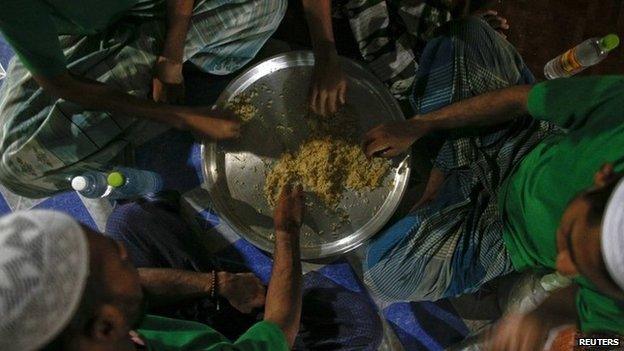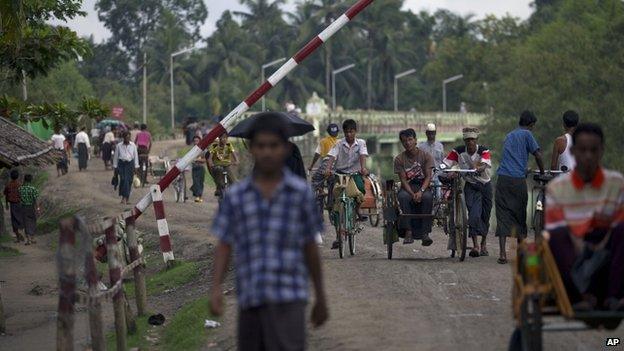Thailand sends Rohingya Muslims back to Burma
- Published

Rights groups say the Rohingya people, who are considered stateless, face discrimination in Burma
The Thai authorities have announced that 1,300 Rohingya refugees were sent back to Burma last year.
They had been held at Thai detention centres and deported late last year, but the news has only just emerged.
Human rights groups have criticised the move, saying Rohingyas face persecution in Burma, also known as Myanmar.
Many thousands of Rohingya Muslims have fled Burma in the wake of repeated outbreaks of ethnic and sectarian violence in recent years.
The worst of the violence affecting Rohingyas has been in Rakhine state, in the west of Burma, which has seen fierce clashes between Buddhists and Muslims. Rights groups say tens of thousands have been displaced there, with many still living in camps.
The Rohingya people are considered stateless and are rejected by both Burma and neighbouring Bangladesh, which already hosts several hundred thousand refugees from Burma and says it cannot take any more.

Clashes erupted between Buddhist and Muslim communities in Burma's Rakhine state in 2012
"The deportations were voluntary. We sent them back 100 to 200 people at a time," police Lieutenant General Pharnu Kerdlarpphon told the Associated Press news agency.
"These people said they could not see any future while being held in Thailand, so they chose to go back to Myanmar," he added.
But the announcement was met with condemnation.
"The deportation of Rohingya is a blatant violation of international laws that prohibit sending back refugees and asylum-seekers to a place where they can face danger and persecution," said Sunai Phasuk, a senior researcher with Human Rights Watch.
Many of them have attempted dangerous sea journeys in flimsy boats, mostly to Malaysia. Aid agencies say they are very vulnerable to bad weather, engine failure, or being sold by people-traffickers in Thailand.